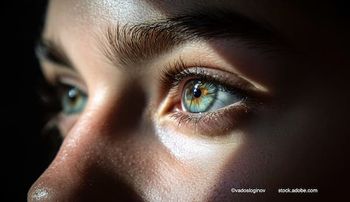
Low antioxidant levels and exposure to sunlight likely to damage vision
The combination of low antioxidant levels and exposure to sunlight may damage vision and also is linked to age-related macular degeneration, according to a study published in the October issue of the Archives of Ophthalmology.
London-The combination of low antioxidant levels and exposure to sunlight may damage vision and also is linked to age-related macular degeneration (AMD), according to a study published in the October issue of the Archives of Ophthalmology.
Studies suggest that blue light or short-wavelength light may damage the retina and contribute to the development of AMD. Antioxidant enzymes including vitamins C and E, the carotenoids, lutein, zeaxanthin, and zinc may protect against the harmful effects of blue light on the retina, according to a prepared statement from the American Medical Association.
“The retina is vulnerable to the damaging effects of light,” wrote study authors. “While wavelengths in the UV radiation range are largely absorbed by the cornea and lens, the retina is exposed to visible light, including blue light.”
Of the 4,400 participants of the European Eye Study, 2,117 did not have AMD, 101 had neovascular AMD, and 2,182 had early stage AMD. Although there was no association between blue-light exposure and early AMD, blue-light exposure was associated with neovascular AMD in one-fourth of individuals with the lowest antioxidant levels.
Newsletter
Don’t miss out—get Ophthalmology Times updates on the latest clinical advancements and expert interviews, straight to your inbox.





























